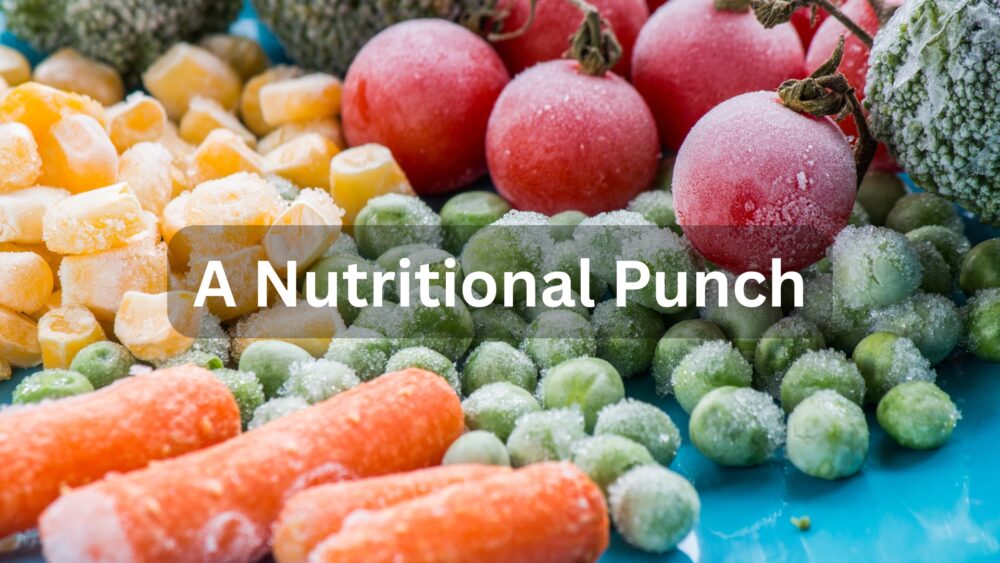Recently, I had a conversation with my colleagues about healthy eating, and to my surprise, many of them believed that frozen vegetables are unhealthy—some thought fresh vegetables are the best and some thought they were less nutritious than fresh produce. As someone who has relied on frozen veggies for years, I knew this wasn’t true. While I don’t deny that fresh farm produce is good, I think it’s very difficult for the working class to buy vegetables daily.
So, I confidently decided to dig deeper into the science, compare nutritional facts, and bust the most common myths and educate my colleagues. Here’s why frozen vegetables are not only safe but often a smarter choice than fresh—especially when it comes to nutrient retention, convenience, and cost. (Disclaimer)
Table of Contents
Frozen vs. Fresh: Which One Is Actually Healthier?
Many people assume that fresh vegetables are always superior, but research tells a different story.

- Flash-freezing locks in nutrients at peak ripeness, preserving vitamins and antioxidants.
- Fresh produce loses nutrients during transport and storage. For example:
- Spinach loses 50% of its folate within 8 days at room temperature.
- Green beans lose 45% of vitamin C after 7 days in the fridge.
- Studies show that frozen broccoli, corn, and blueberries often have equal or higher nutrient levels compared to fresh produce that’s been sitting on shelves.
The only downside, in my opinion, is texture changes in some vegetables, but the difference is minimal. So unless you can get fresh farm produce, frozen vegetables are equally nutritious.
Why I Prefer Frozen Vegetables (And You Might Too)
After years of using both fresh and frozen, here’s why I now stock my freezer:
- Year-Round Availability – Frozen makes non seasonal veggies available.
- No Prep Needed – Pre-washed, pre-cut—just toss into meals.
- Less Food Waste – Lasts 8-12 months vs. fresh veggies spoiling in days.
- Budget-Friendly – Often 30-50% cheaper, especially off-season.
- Perfect for Meal Prep – Use only what you need; no wilting leftovers.
Common Myths About Frozen Vegetables
Frozen Vegetables Are Less Nutritious Than Fresh
Freezing preserves nutrients better than long-haul transportation. A 2015 study in the Journal of Agricultural and Food Chemistry found that frozen fruits and veggies often had higher levels of vitamin C, polyphenols, and antioxidants compared to fresh-stored produce.
Frozen Veggies Contain Preservatives
Freezing is a natural preservation method—no added chemicals needed. Always check labels, but most frozen vegetables contain just the vegetable itself unlike frozen packaged food.
You Can’t Cook Frozen Veggies Without Them Turning Mushy
Proper cooking methods make a difference: Roast at high heat (425°F) for crispiness; Air-fry for a crunchy texture; Stir-fry directly from frozen (no thawing needed).
Best Frozen Vegetables To Buy (And Ones To Avoid)
Top Picks for Maximum Nutrition:
- Spinach & Kale – Retain iron and calcium well.
- Broccoli & Cauliflower – High in fiber and vitamin C.
- Peas & Edamame – Great plant-based protein sources.
- Bell Peppers & Onions – Convenient for quick cooking.
Avoid These (Unless Label-Checked):
- Vegetables with cheese/butter sauces (high in sodium and unhealthy fats).
- Seasoned blends with added salt/sugar (opt for plain versions).
In other words, don’t store packaged foods for long because they contain preservatives, fats, etc. Please remember, I am only talking about frozen vegetables, not frozen food.
Frozen vs. Fresh vs. Canned: The Ultimate Comparison
| Feature | Frozen | Fresh (Store-Bought) | Canned |
|---|---|---|---|
| Nutrients | High (if flash-frozen) | Can degrade over time | Often lower (due to heat processing) |
| Convenience | Ready to use | Requires washing/chopping | Ready to use (but often high in salt) |
| Additives | Rare (if plain) | None | Often contains salt/sugar |
| Shelf Life | 8-12 months | 3-7 days (typically) | 1-2 years |
Final Thoughts: Should You Switch To Frozen?
- Frozen wins for nutrition + convenience.
- Fresh is best if locally sourced and consumed quickly.
- Canned is okay in a pinch, but watch for sodium/sugar.
After years of using both, I confidently say: Yes, frozen vegetables are a smart choice. They’re nutritious, reduce waste, save money, and make healthy eating easier.
- More Than Fresh: The Unexpected Nutritional Punch Of Frozen Vegetables – April 18, 2025
- Beyond The Diet: My Unexpected Discoveries With Intermittent Fasting – January 11, 2025
- Shilajit: A Deep Dive Into The Himalayan Elixir – January 5, 2025

Leave a Reply